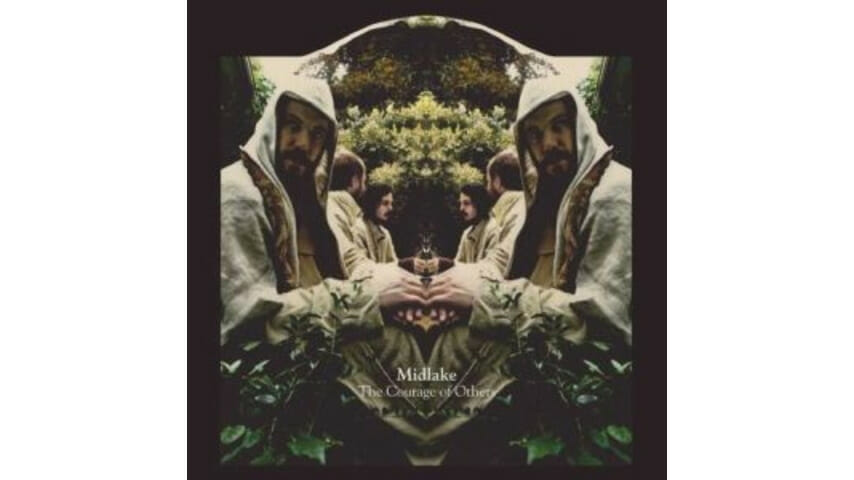Midlake: The Courage of Others

Shape-shifting Texas band takes hard left turn
The disappointing thing about most Molly Hatchet albums—beside the fact that they’re horrible—is the blatant deception of their covers. During the band’s heyday, Hatchet album art featured a hulking, wide-eyed barbarian swinging a massive battleaxe as sinew and bits of bone fell about him like crimson snow. It was, in a word, badass. But when you dropped the needle, out came a sickening bilge of chuggin’ boogie blues and butt rock. The only thing hemorrhaging was your ears.
So thank Christ for whoever art-directed Midlake’s new album cover, The Courage of Others. Here we have a pissed-off dude in a hooded cloak looking like the Wizard of Williamsburg, and a vaguely psychedelic mirror-image effect that turns entwined fingers and background trees into buds of broccoli. It’s at once trippy, foreboding, and beguiling. Hit play and immediately it makes sense: Ladies and gentlemen of Midlake fandom, after a nearly four-year layoff, we are taking a hard left turn. Next stop, the Middle Ages.
Whereas 2006’s The Trials of Van Occupanther, the band’s breakthrough, had lazy journalists reaching for phrases like “modern Fleetwood Mac” or “East Texas Radiohead,” Courage has this lazy journalist reaching for “Baroque Sabbath.”
Gone are the sleepy, piano-driven lo-fi grooves—the nod to ’70s guitar rock that Midlake admittedly did better than most, but that still left them pigeonholed alongside equally mellow bands like Vetiver. This time out, Midlake has left its native Denton, Texas, for a place way south of somber. It’s a much darker, oppressively minor-key world where songs have a madrigal lilt, vocals are layered like sediment, guitars (mostly acoustic) are gently strummed, echoing flutes and droning Floyd-ian keyboards provide atmosphere, and where there is much moping all around. This isn’t metal, but thematically, at least, it’s just as heavy.
-

-

-

-

-

-

-

-

-

-

-

-

-

-

-

-

-

-

-

-

-

-

-

-

-

-

-

-

-

-

-

-

-

-

-

-

-

-

-

-








































